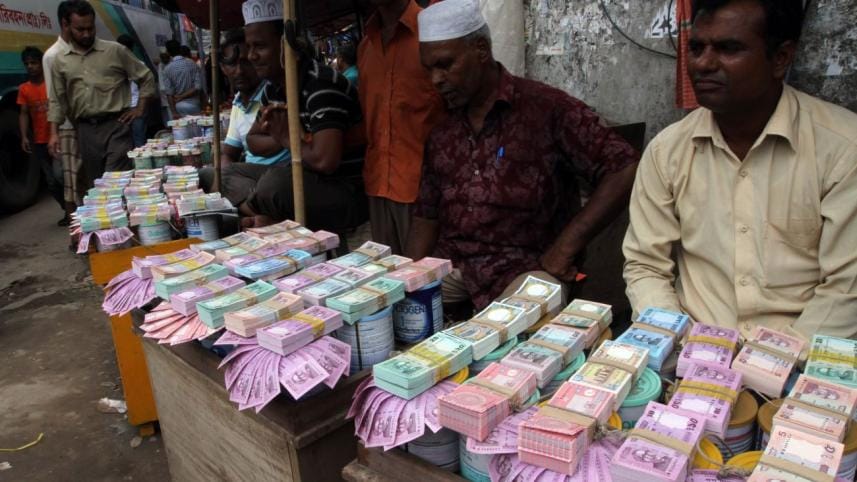Cash use costs Bangladesh Tk 9,000cr every year

The country has to count more than Tk 9,000 crore a year because of its heavy dependence on cash, further depicting the necessity to move towards a cashless society.
The maintenance cost of the printed money is nearly 0.50 percent of the country's GDP, according to the central bank report styled 'Reducing the Cash Transaction'. The Bangladesh Bank calculated the cost based on a survey by US consultancy firm McKinsey & Company.
Shops and banks have to bear most of the cost for the use of cash at 33 percent each, followed by corporate entities at 13 percent, the government at 10 percent and individuals at 6 percent, according to the report.
Banks have to take insurance coverage for their vault as well as the transportation of cash in order to secure the money, adding a large amount to their operating costs, said Md Mustafizur Rahman, head of alternate delivery channel of City Bank.
They have to appoint dedicated manpower to manage both their cash and counter. Armed guard and specialised vehicles have to be hired frequently when banks transport their cash from one branch to another, he said.
"Huge time is wasted because of transportation of cash. The shoppers and distributors of the corporate entities are also facing the same difficulties," he added.
Meanwhile, the central bank's expenditure on printing and circulation of cash has been on the rise for years with the growth of the economy. For instance, in fiscal 2016-17 the BB spent Tk 450 crore for this end, up 22 percent from four years earlier.
This indicates the existing transformation process to digital banking from the manual one is not adequate, said a BB official, adding that the banking sector will have to run at a faster pace to embrace the cashless society.
At present, 8 percent of the utility bills and 2.6 percent of the salaries are paid through the digital platforms, meaning the country has a long way to go to become a cashless society, said the central bank report.
Only 6 percent of the total transactions are now settled through the electronic mode, it said.
A majority of the employers, ranging from industrial units to owners of retail stores, are still paying their employees' wages in the form of cash, which wastes time and fuels costs, said Anwar Hossain, head of Mutual Trust Bank's card division.
"We have recently rolled out a salary debit card for the industrial workers who receive their salary and wage through our bank. This initiative is now helping both employers and employees settle their transactions smoothly," he said.
Economic activities will spiral three to four folds if transactions can be made in a digitised manner, Rahman added.
Quoting an analysis of Moody's Investors Service, the central bank report said that the rise in the use of credit and debit cards, which are considered major components of a cashless society, gives momentum to GDP growth.
The American credit rating agency made the analysis based on the use of cards in 70 countries between 2010 and 2015.
If the use of cards increases by 1 percent, the GDP growth would be 0.02 percent more in developing countries and 0.04 percent more in the developed ones, according to the Moody's report.




 For all latest news, follow The Daily Star's Google News channel.
For all latest news, follow The Daily Star's Google News channel.
Comments